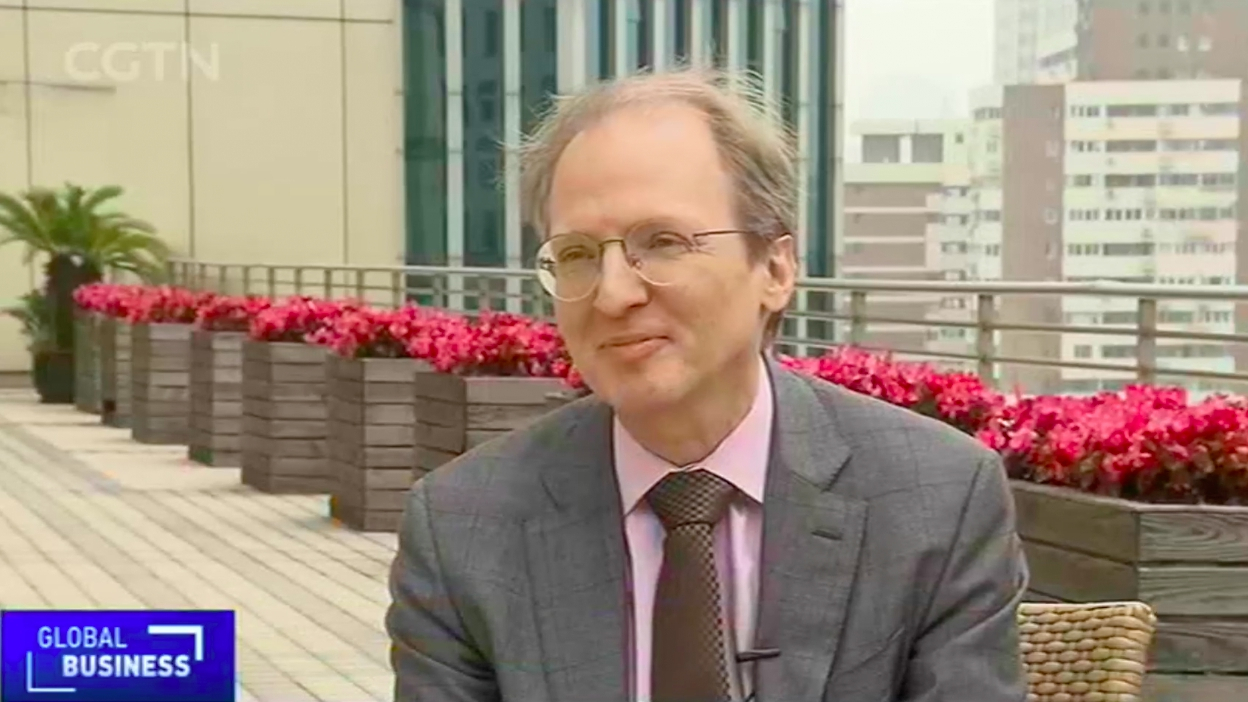
Biz Analysis
22:23, 20-Apr-2019
China EconTalk: McKinsey predicts China won't 'overstimulate' economy
Updated
23:13, 20-Apr-2019
Global Business, Wang Lihuan
02:31

China's economic growth stood at 6.4 percent in the first quarter of 2019, beating expectations. Jonathan Woetzel, a senior partner at McKinsey & Company, considers China's economy stable rather than declining, and predicts that the Chinese government will not overstimulate its economy.
"Chinese economy is pretty stable. It's not declining. It's growing at a moderate pace compared to previous years. I don't think the Chinese government wants to overstimulate the economy," he said.
'Stable and incremental' monetary policy
Woetzel regarded Chinese monetary policy as stable, too. "I think it's trying the best to ensure the credit growth to be where it needs, but not overdoing."
He predicted that the monetary policy going forward would maintain "stable and incremental," with changes depending on both external and internal conditions.
"The monetary policy is stable, but it could change, depending on the external environment to be better or worse. From the domestic side, there are some concerns about middle-class consumers and how robust that consumption will be. Overall, the government's conservative posture is trying to support reform that means a stable and incremental policy," he explained.

Jonathan Woetzel, a senior partner at McKinsey & Company. /CGTN Photo
Jonathan Woetzel, a senior partner at McKinsey & Company. /CGTN Photo
No worries over contracting imports
China's imports have been contracting for several months, but Woetzel does not foresee domestic demand weakening.
From his perspective, import performance indicates that China is changing its import profile, which will gradually deepen the domestic supply chain. "Many intermediate goods that China imported before now are manufactured at home," he explained.
Another reason behind shrinking imports is the more efficient usage of raw materials and commodities.
He advised China to import more from developing countries, as well as to offer consumers options to "import more from developed economies."
"That will be good for those economies, but also good for China," Woetzel told CGTN.

SITEMAP
Copyright © 2018 CGTN. Beijing ICP prepared NO.16065310-3
Copyright © 2018 CGTN. Beijing ICP prepared NO.16065310-3